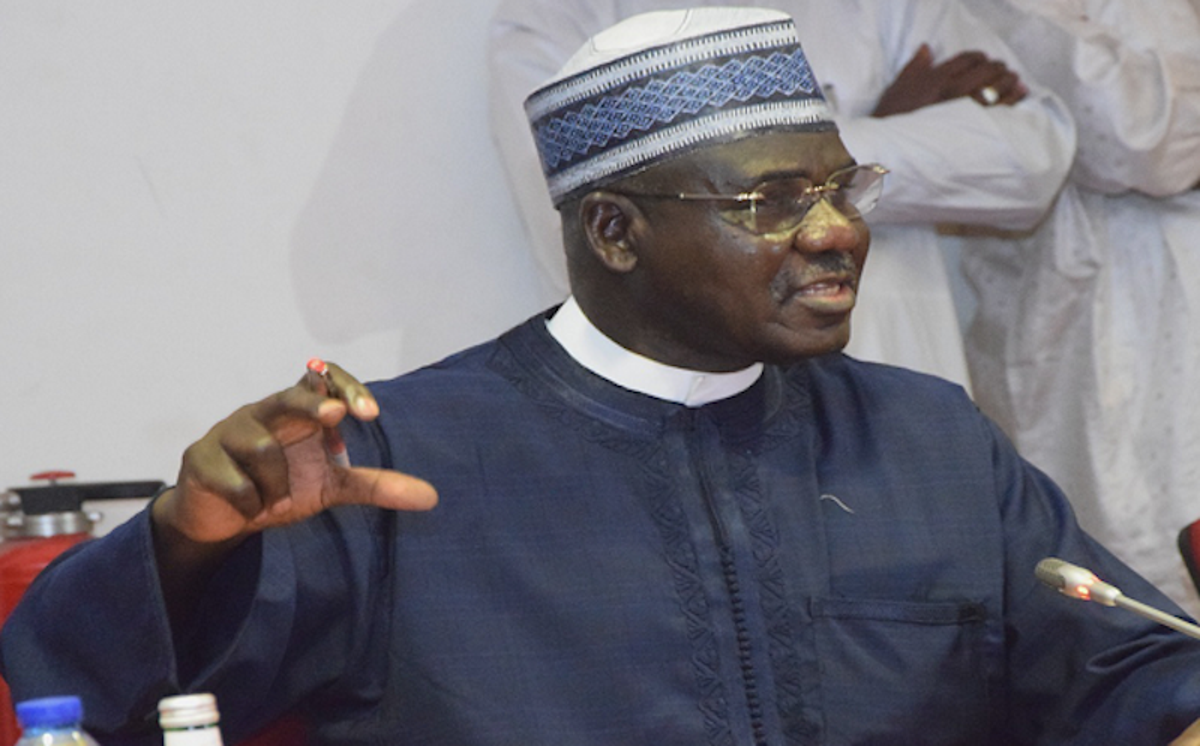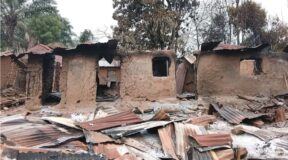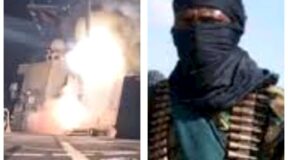Again, Buratai Sues For All-Inclusive Dialogue to End Insurgency
OpenLife Nigeria reproduces an article by Lousi Achi who re echoes Ambassador Tukur Buratai’s timely suggestions on how to tackle prevailing insurgency in Nigeria
Nigeria’s former Chief of Army Staff (COAS) and current Ambassador to the Benin Republic, Lt. General Tukur Yusuf Buratai has proposed an alternative engagement modus with non-state actors who have actively sought and are still seeking to bring the nation to her knees and fracture her sovereignty.
Following his appointment in July 2015 as COAS by President Muhammadu Buhari until he exited in 2021, Lt. Gen. Buratai had besieged the Boko Haram terrorist group and other potent armed non-state actors who posed considerable existential threat to the nation. He led from the front, amidst grueling, multifarious challenges and left with head held high.
Lt. Gen. Buratai had on June 11, 2022, called for dialogue between governments and armed groups, saying a growing practice of engaging in dialogue with all parties to a conflict had emerged since the mid-1980s. He observed that there must be concerted efforts that there are no ungoverned spaces in the land.
He urged state and local governments to establish their presence in their areas of responsibility. According to him, negotiation and dialogue are integrated approaches that can end insecurity by involving traditional and religious leaders, media, security and intelligence agencies.
The former Army boss spoke as a guest lecturer at a one-day symposium on National Security, organised by the Ahmadu Bello University (ABU) Centre for Historical Research and Documentation, Arewa House Kaduna, with the theme ‘Politics and Insecurity in Nigeria: Way Forward’.
Significantly, he further noted that he aligned with the approach being promoted by a revered Islamic cleric, Sheikh Gumi, seen by many as controversial. His words: “This is where I commend Sheikh Gumi for his initiative. One-third of the fight is military; others should be non-kinetic, through dialogue. We must get this solution and this is the right time to get it done.”
Buratai further suggested the revitalisation of the Defense Industries Corporation of Nigeria, better welfare and equipment for police, as well as the establishment of a national border force as done in other parts of the world.
According to him, the issue of the carrot and stick approach can be used to explore ways to end some of the conflicts confronting Nigeria, counselling the Office of the National Security Adviser (ONSA) to collaborate and employ all means to block off supplies to terrorists.
He also held that “the ongoing reforms of the Nigerian Police, procurement of modern platforms for intelligence gathering, and effective control of Nigeria’s porous borders will go a long way” in curbing various forms of insecurity in different parts of the country such as insurgency in the North East, banditry and kidnapping in the North West, agitations in South East and crude oil bunkering in South-South.”
The one day event was graced by heads of military and paramilitary organisations, the Sultan of Sokoto, Muhammadu Sa’ad Abubakar who was represented, university dons, religious leaders, serving and retired military office and prominent Nigerians from diverse walks of life.
Is it conceivable that General Buratai’s diplomatic tour of duty may have mellowed the tough soldier’s appetite for frontal confrontation, or on the other hand, tweaked his philosophy of engagement? Big question!
According to Italian-American Professor of International Relations, Angelo M. Codevilla, “By their very nature, diplomacy and military force are means to the ends of statecraft as well as channels by which governments press their agendas on others. Neither is inherently more or less useful than the other.
“Far from being antithetical to one another, diplomacy and military force are complementary insofar as they serve the same political ends. “What are we after? What are they after?” These questions are as central to warfare as to diplomacy.”
In dissecting General Buratai’s new recipe of caging bloody insecurity, it needs to be stated that current armed conflict in Nigeria is characterised by an abundance of non-state armed groups who compete with the state for control over people, resources, and territory. The composition, areas of influence, and alliances of these groups tend to be fluid and subject to rapid change. This essentially captures the strategy of Boko Haram insurgents.
Beyond this, the internal dynamics within them are often opaque, providing limited opportunities for outsiders to develop an understanding of their interests and to identify opportunities for negotiation. Humanitarian actors, diplomats, and mediators must nevertheless engage these groups if they are to succeed in reducing levels of violence, bring an end to the conflict, or provide humanitarian assistance to vulnerable communities.
Before these negotiations can begin, however, opportunities have to be found or created to bring armed groups to the negotiating table – whether literal or figurative. But then these groups need to be first incentivized.
The most effective incentive for armed groups to negotiate usually relates instead to legitimacy. But careful analysis is needed to ensure these groups enter negotiations in good faith rather than being content to simply appear to negotiate. Opportunities are likely to be scarce for engaging armed groups that derive their legitimacy by violating international norms. Armed groups may also be compelled to negotiate over their desire for humanitarian assistance to substitute for their own responsibilities.
Positive inducements, then, are usually a more effective means of getting armed groups to the negotiating table. The most effective incentive for armed groups usually relates to their need for legitimacy. Many armed groups serve as de facto governments often overseeing a range of government-like services, such as health or education departments. Others have even established putataive sub-national governance structures and often aspire to hold post-conflict leadership positions.
In a significant sense ‘conference diplomacy,’ a term coined by the defunct League of Nations, can contribute to conflict prevention by providing a forum for negotiation over the terms of a conflict’s conclusion, as well as laying the ground for the development of sustainable peace.
As part of the diplomatic toolbox, it allows focused attention to the issue at hand, brings together all relevant actors – ideally in a neutral setting and by a trusted convener – and fosters both momentum as well as a clear deadline for action.
At press time, it cannot be disputed that the nation badly needs an end to the current bloodletting, brazen banditry and kidnapping daily going on. Today, food insecurity, direct fallout from the rampaging banditry, is glaringly real. Is Gen. Buratai the man who saw tomorrow?







